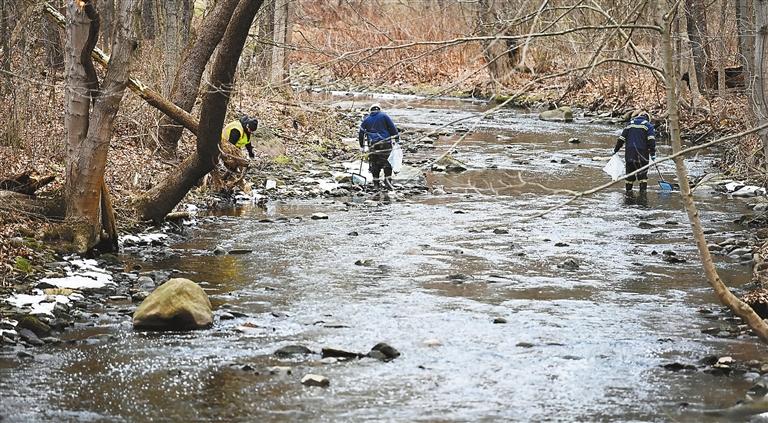
HEALTH and environmental concerns are mounting in an Ohio town in the United States after several derailed train cars released toxic fumes last week. On Feb. 3, about 50 cars of a Norfolk Southern train went off track, causing a days-long fire in the area. The accident occurred in East Palestine, a town of 4,800 residents near the Ohio-Pennsylvania border, due to a faulty axle in one of the vehicles. Ten of the 50 derailed cars contained hazardous chemicals including butyl acrylate and vinyl chloride, which were among combustible liquids that authorities feared could set off a major explosion. Residents of East Palestine were later asked to evacuate out of precaution. On Monday, Feb. 6, crews conducted what officials called a “controlled release” of the hazardous chemicals, which caused a large plume of black smoke. The evacuation order was lifted Feb. 8 and since then, there have been a growing number of reports about people experiencing a burning sensation in their eyes, animals falling ill and a strong odor lingering in the town. Some business owners and East Palestine residents have filed lawsuits against Norfolk Southern, saying the company was negligent and demanding the company fund court-supervised medical screenings for serious illnesses that may be caused by exposure to those chemicals. Local officials have insisted that the air is safe to breathe and the water is safe to drink in East Palestine. The Environmental Protection Agency (EPA), which has been monitoring the air quality, said it has not detected “any levels of concern” in East Palestine as of Sunday. The agency added that vinyl chloride and hydrogen chloride have not been detected in the 291 homes that have been screened as of Monday. There are 181 homes left to be evaluated in the voluntary indoor air screening program. On Sunday, the EPA released a list, written by Norfolk Southern, of the toxic chemicals that were in the derailed cars. In addition to vinyl chloride and butyl acrylate, it mentions ethylhexyl acrylate, which can cause headaches, nausea and respiratory problems in people exposed to it; as well as isobutylene, which can make people dizzy and drowsy. Of particular concern is the vinyl chloride, which was loaded on five cars — a carcinogen that becomes a gas at room temperature. It is commonly used to make polyvinyl chloride or PVC, which is a kind of plastic used for pipes, wire and cable coatings and car parts. When vinyl chloride is exposed in the environment, it breaks down from sunlight within a few days and changes into other chemicals such as formaldehyde. When it is spilled in soil or surface water, the chemical evaporates into the air quickly, according to the Ohio Department of Health. Breathing or drinking vinyl chloride can cause a number of health risks including dizziness and headaches. People who breathe the chemical over many years may also experience liver damage. The EPA has been monitoring for several other hazardous chemicals, including phosgene and hydrogen chloride, which are released by burning vinyl chloride. Exposure to phosgene can cause eye irritation, dry burning throat and vomiting; while hydrogen chloride can irritate the skin, nose, eyes and throat, according to the Centers for Disease Control and Prevention. The Columbiana County Health Department told residents to reach out to their medical provider if they experience symptoms. The harmful effects of these toxic chemicals largely depend on the concentration and exposure. “Now that we are entering into a longer-term phase of this, people are going to be concerned about the long-term chronic exposure that comes at lower levels,” said Karen Dannemiller, a professor at Ohio State University who studies indoor air quality. She added that indoor spaces can be an important point of exposure. Air cleaners and masks are likely no match for hazardous chemicals like vinyl chloride because of their tiny molecules, Dannemiller said. According to the U.S. Department of Transportation, about 4.5 million tons of toxic chemicals are transported by rail each year, with an average of 12,000 rail cars shipping the materials through cities and towns each day. The incident is “the tip of the iceberg and a red flag,” Ron Kaminkow, secretary for the Railroad Workers United, a nonprofit labor group, was quoted by The Guardian as saying. “If something is not done, then it’s going to get worse, and the next derailment could be cataclysmic.”(SD-Xinhua) | 
